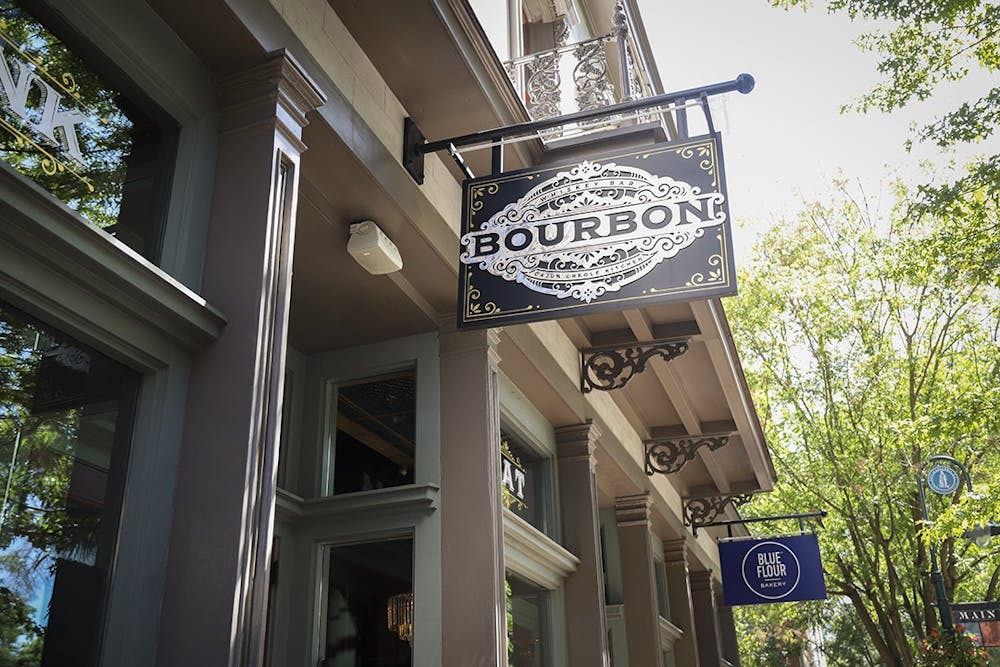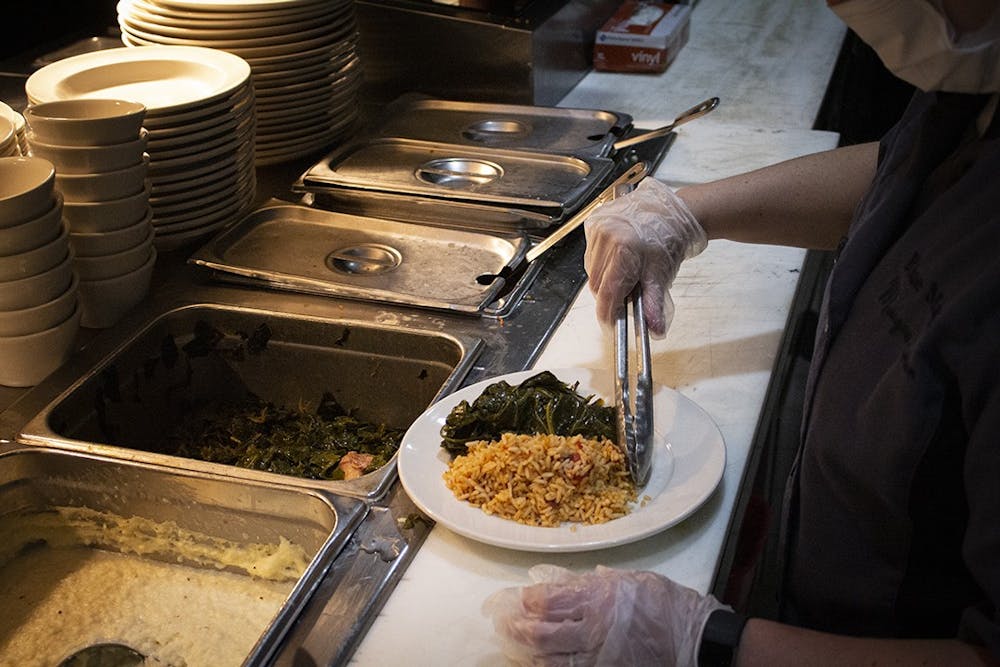Southern cuisine in South Carolina started on small farms with local produce and fresh ingredients. As the food industry has started to expand in the South, though, many restaurants stopped using local products in favor of getting ingredients from bigger farms around the country.
Some restaurants in Columbia, South Carolina, find that buying local ingredients is an important way to preserve the traditions Southern food was built on.
Saluda’s Restaurant, located in Five Points, takes traditional Southern food and combines it with a fine dining experience. Owner Steven Cook said Southern cuisine can be characterized as a mixing pot of cultures from all over the world.
Saluda’s sources as many of its ingredients from South Carolina farms as it can, using these fresh ingredients to enhance the flavor of its dishes and provide a more homegrown feel to its fine dining experience, Cook said.
“Obviously, one of the big things in recent history has been getting back to the roots," Cook said. "This is not just a Southern thing, but all over, getting back where you’re serving locally grown produce."
Blue Marlin, located on Lincoln Street, focuses on low country, Cajun and Creole cuisine. It buys some of its produce, such as tomatoes and collard greens, from local South Carolina farms, according to Maegan Horton, the Blue Marlin's executive chef. What it can't get, it buys from other local markets, such as shrimp from Louisiana.
“Society these days loves for you to feature local farmers,” Horton said. “Obviously, it helps the environment around us, the culture around us.”

Bourbon Columbia, located on Main Street, specializes in Cajun Creole cuisine from Louisiana and Mississippi. Owner Kristian Niemi said the restaurant buys many of its ingredients from local farms.
Niemi said sourcing ingredients locally is "incredibly important" to keeping many smaller farms in business.
"It supports small farms, which really kind of need it more than ever now ... when you see small farms disappearing due to large agriculture," Niemi said. "We were losing the variety that was once found everywhere throughout the South.”
Niemi said supporting these smaller farms has already created a shift in agriculture.
"With small farms coming back due to restaurants and small markets supporting them — even large markets like Whole Foods and such — farmers have an ability to grow the things that traditionally grew in the South again, instead of growing mass produced products you could find everywhere," Niemi said.
In light of the COVID-19 pandemic and the closure of many restaurants for safety reasons, smaller farms need support from restaurants and larger markets more than ever. Some restaurants, including Saluda's, have found other ways to support them.
Freshly Grown Farms distributes "lettuce and similar-type vegetables" to restaurants such as Saluda’s, Cook said, but after the pandemic started, it lost two of its biggest clients: restaurants and farmers markets around South Carolina. The business found itself with a surplus of lettuce and nowhere to send it.
“That was incredibly sad to me because, you know, you think about — it's not like you make something and it's there, it takes time to get all that ready to harvest,” Cook said. “We ended up selling a lot of his lettuce kind of wholesale. We use it for salads when we’re doing to-go stuff, but we also would sell it to people.”
Horton said Blue Marlin didn't see much of a change in the produce it sourced from local farms.
“The big thing is, everything went to a halt, and now you’re just trying to kick start things again," Horton said.
Cook said he uses his studies on the origin of Southern cuisine to influence Saluda's dishes.
“The best food, all the best food you can think of, came from really, really poor people who had to get really, really crappy ingredients, and how are they going to make it taste good?" Cook said.
By utilizing whatever is at hand, in combination with some of the best ingredients in the state, Cook said Saluda's can create an elevated menu that maintains the tradition it originated from.
Blue Marlin takes these traditional ideas and expands on them by sticking to simple recipes that combine low country cuisines Southerners know and love with Louisiana's Cajun Creole cuisine.
“Everything at Blue Marlin is scratch-made. So, we make everything in-house; we don’t buy anything," Horton said. "The people before me, they've made recipes that we follow every day and make everything in-house to give that homemade feel."
Bourbon uses its locally sourced ingredients to make its dishes "the same way" people make it at home in places such as Louisiana and Mississippi to give it a homemade feel, Niemi said.
These restaurants take the traditional dishes most Southerners experience in their own homes and expands upon them while keeping Southern food culture alive by supporting the local businesses that helped create it.

